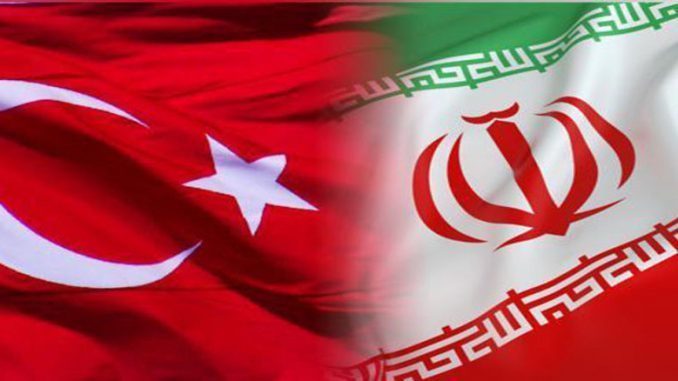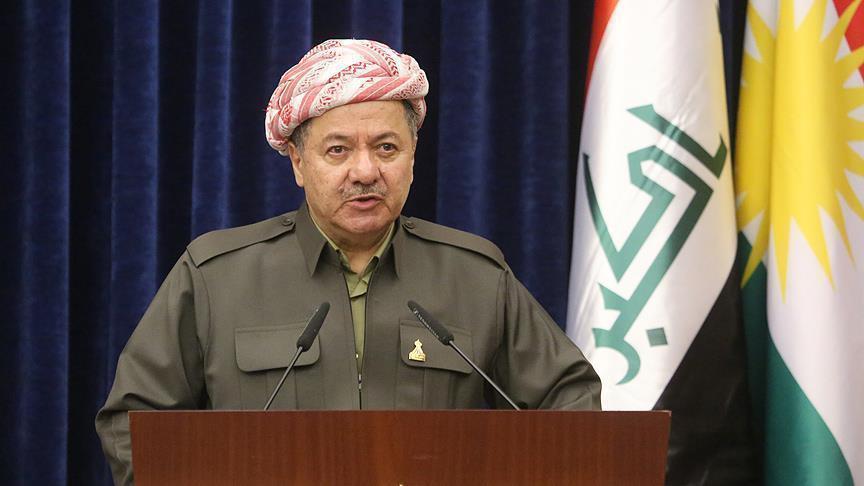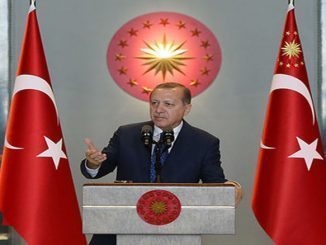
Turkey and Iran have discussed possible joint military action against Kurdish militant groups, after talks in Ankara last week between the chief of staff of Iran’s armed forces and Turkish leaders, President Tayyip Erdogan said.
Speaking to reporters before departing on an official visit to Jordan, Erdogan also said a more effective struggle against the outlawed Kurdistan Workers Party (PKK) and its Iranian affiliate, PJAK, would be possible through joint action with Iran.
“Joint action against terrorist groups that have become a threat is always on the agenda. This issue has been discussed between the two military chiefs, and I discussed more broadly how this should be carried out,” Erdogan said.
Bilgehan Alagoz, an expert on Turkey-Iran relations at Marmara University in Istanbul, said there has been bilateral cooperation against terrorists over the last three decades. “But in the last six years, Turkey and Iran have had a different approach toward Syria,” she said.
“This division enabled the PKK and its Syrian branch the PYD (Democratic Union Party) to increase their activities in the region,” she said.
“Recently the two countries have great concerns about security threats, and they’re willing to crack down on PKK/PJAK terrorist activities.”
Alagoz said that with greater border controls and intelligence-sharing about terrorist groups, Iran and Turkey will show intensified cooperation against regional security threats. “But the US strategy, based on arming the PYD, creates great concern in Turkey. This is another reason why Turkey is determined to act together with other regional actors against threats on its borders,” she added.
Gulriz Sen, an Iranian expert at the TOBB University of Economics and Technology in Ankara, said bilateral relations have gone through ebbs and flows since the start of the Arab Spring as the two neighbors, each keen to shape regional developments, hold diverging views on the Syrian regime and the role of Iran-backed militias in Iraq’s struggle against Daesh.
“But the recent visit of Bagheri demonstrates elements of convergence in bilateral affairs, and provides a fresh impetus for cooperation based on Turkey’s and Iran’s rejection of an independent Kurdish state in the region, which they fear would prove contagious and stir up the demands and aspirations of their own Kurdish populations,” she said.
The decision to take joint action against the PKK and PJAK reflects their common opposition to changing the region’s political map, Sen added.
Ahmad Majidyar, resident fellow and director of the IranObserved project at the Middle East Institute in Washington, said the latest political and security developments in Syria and Iraq have brought Iran and Turkey closer together, and have forced the two regional powers to cooperate to address issues of mutual concern.
“Iran believes it now has the upper hand in Iraq and Syria, and wants to defuse tensions with Turkey to consolidate and sustain its strategic interests in the region,” Majidyar said.
“And as the Trump administration is ratcheting up political and economic pressure on Iran, Tehran hopes that closer diplomatic and economic ties with Ankara will help it mitigate the impact of US sanctions.”
Majidyar said Turkey is disappointed with US policies in Iraq and Syria, namely continued support for Kurdish forces in northern Syria, and not preventing Iran-backed Iraqi paramilitary forces from participating in the recent Tal Afar operation. “
So Ankara is seeking to address some of its political and security concerns in the region by working closely with Russia and Iran instead,” he said.
“But while Turkey and Iran are taking concrete steps to cooperate on regional issues, divergent interests and policies may hinder the two major non-Arab Middle Eastern powers from developing their issue-based cooperation into a strategic relationship.”
Erdogan and Jordan’s King Abdallah called on Monday for new “serious and effective” peace talks between Israel and the Palestinians, the royal palace said.
Meeting in Amman, they urged “the resumption of serious and effective negotiations between the Palestinians and Israel to end the conflict on the basis of a two-state solution to assure an independent Palestinian state with June 1967 borders and east Jerusalem as capital.”
“New peace negotiations must take place according to a precise timetable and be based on international resolutions,” Erdogan and Abdallah said.
They also expressed their “unequivocal rejection of any attempt to change the legal and historical situation in Al-Aqsa Mosque and any unilateral Israeli action threatening the identity of east Jerusalem”



